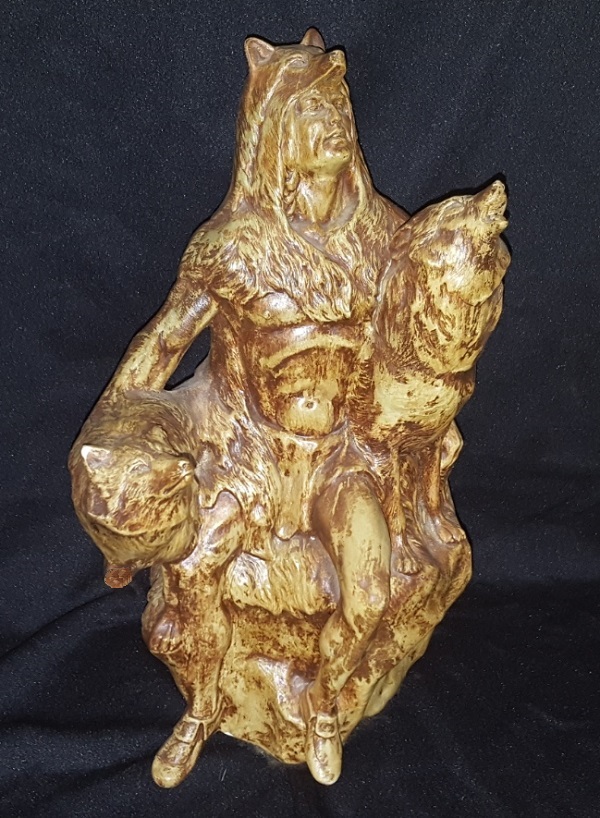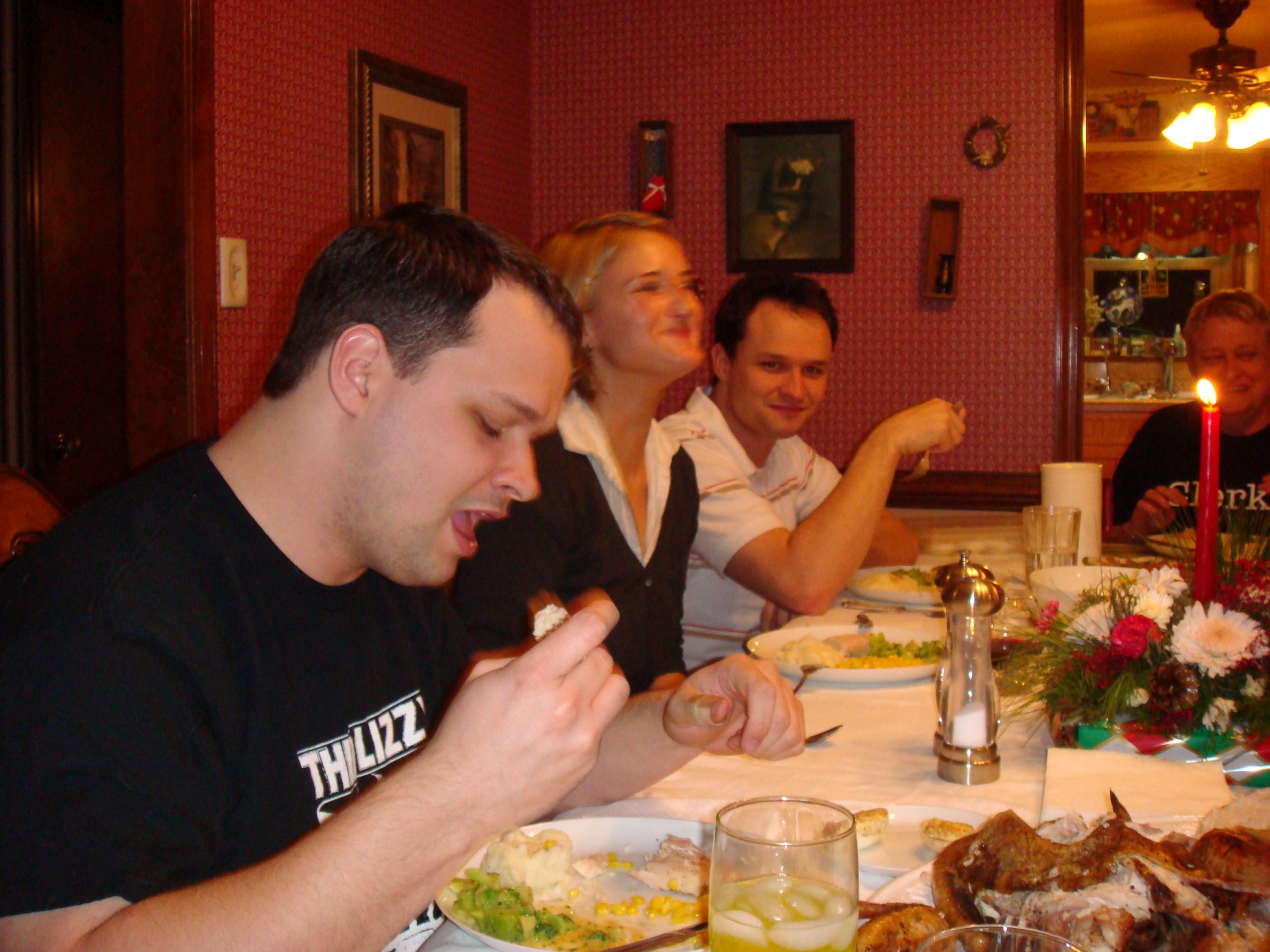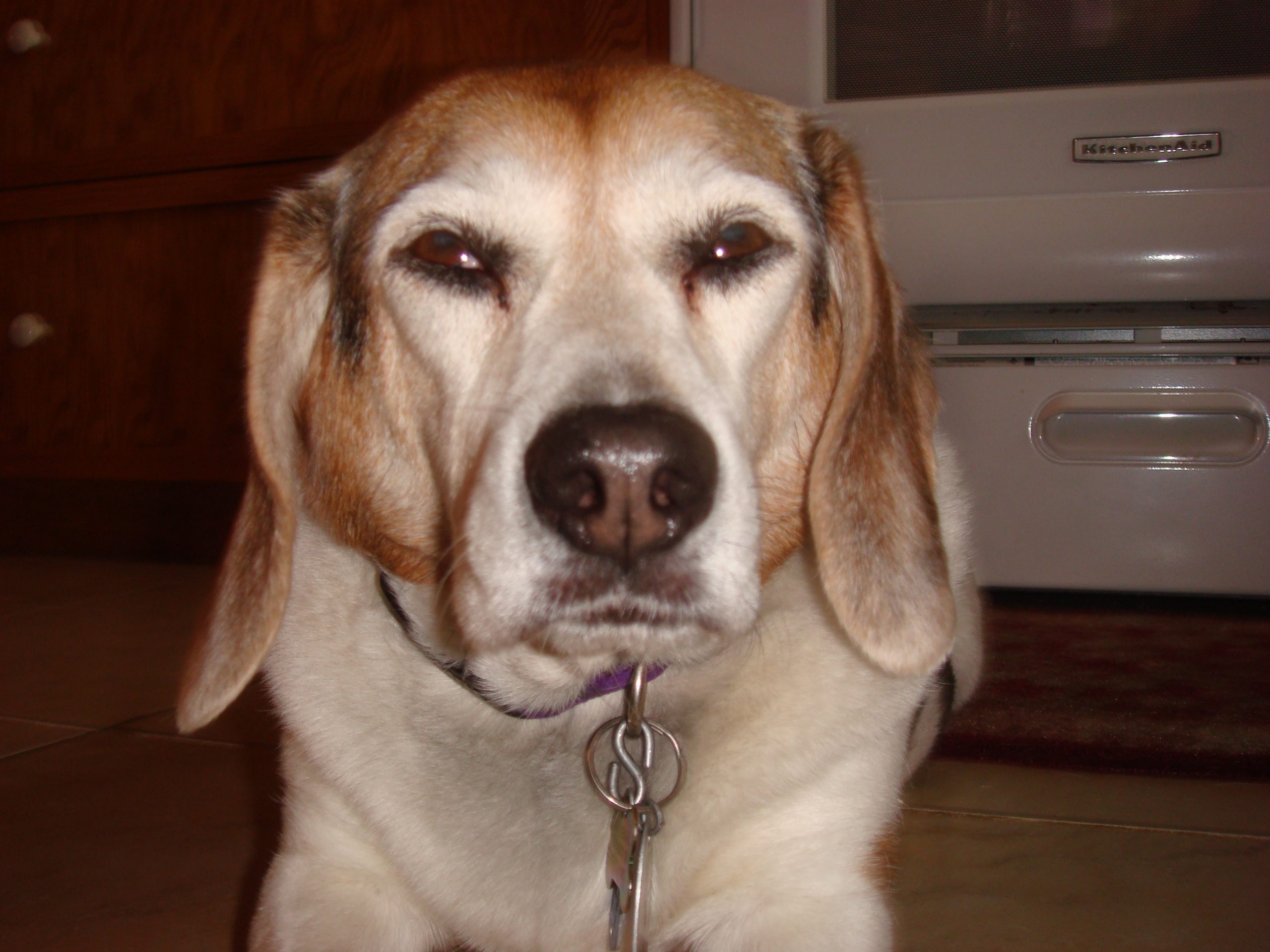Do dogs have souls? – Deeper thoughts
Original article by S. Veigel 07/15/2020
 The debate over whether dogs have a soul is endless because there is no tangible provable evidence. In my mind it’s like “Dark Matter”. It’s called “Dark” because we can see the effects but it does not “interact with an electromagnetic field”, does not “absorb, reflect or emit electromagnetic radiation, and is therefore difficult to detect” (https://en.wikipedia.org/wiki/Dark_matter).
The debate over whether dogs have a soul is endless because there is no tangible provable evidence. In my mind it’s like “Dark Matter”. It’s called “Dark” because we can see the effects but it does not “interact with an electromagnetic field”, does not “absorb, reflect or emit electromagnetic radiation, and is therefore difficult to detect” (https://en.wikipedia.org/wiki/Dark_matter).
By mentioning Dark Matter I’m just saying we’re finding really unusual energies and mass in the universe these days. Even realistic suggestions that there may well be a parallel universe. And if there were an energy and/or material that were the building blocks of a soul it would probably have similar properties; in that we would probably not see or be able to measure it. But can we observe its effect?
My approach to this subject is to pull on a few threads. I’d like to present 3 thoughts touching on some common questions and experiences before adding my two cents to a possible conclusion. Although I will not win the debate, perhaps a few thoughts here might be meaningful.
I: Thought Number One
Can we prove we exist?
Rene Descartes was a 17th century French mathematician and philosopher. Descartes is considered to be the “Father of Modern Mathematics” and the “Founder of Modern Philosophy”. In 1637, in an era of conflict between science and theology, Descartes wrote his “Discourse on the Method of Rightly Conducting the Reason in the Search for Truth in the Sciences”. Within that discourse Descartes gave us five powerful words that continue to be echoed forth throughout the ages. “Cogito ergo sum,” Descartes wrote. “I think, therefore I am.” Later he would express a more singular thought. “I doubt, therefore I think.”
In the 18th century a French poet and literary critic by the name of Antoine Leonard Thomas encapsulated Rene Descartes’ words with the phrase “dubito, ergo cogito, ergo sum. Translated as “I doubt, therefore I think, therefore I am.”
II: Thought Number Two
Let there be light
Regardless of your theology, philosophy or scientific discipline the one thing that the world seems to agree on – both by way of inherent belief and scientific study – is that there was a beginning to our universe. The other thing most people agree with is that there was a logical sequence – both as an inherent belief and scientific study. Though the “how” and “how long” are areas where science and theology often part the sequence itself is of extreme importance.
There was nothing and then there was light. You cannot create something out of nothing, not even physical law itself. And yet there was first a burst of light (energy and particle). Stars burst into flames forcing the existence of atoms and molecules. Water, oxygen, helium, hydrogen, carbon, gold, even dirt itself created in huge solar furnaces. Then came earth and air (planets and asteroids and comets, etc.) because now there was building material. Then came the plants and the creatures of the earth. And last of all human kind. Argue the source all you want, there was a sequence from nothing to everything we experience, everything we know and everything we build with.
Personally, I believe the “meaning of life” is actually in that sequence. But I’ll let you figure it out your way. I just think that one big question will eventually boil down to just four words. “Because there was nothing”.
III: Thought Number Three
I doubt, therefore I think, I am not so different
 I have twin boys who are grown up now. If you ever had twins you may have noticed that 1]: they are totally different people even though they’re twins and 2]: they Joke each other a lot. At our family dinners there were often times when no one could eat because everyone was laughing so hard. One day my son David was standing in the kitchen by the sink eating a snack and all the dogs were staring at him hoping for a taste. At one point David held up his hand and said, “Hey. Opposable thumbs. I can do anything I want”. At the time, his attitude, the timing and the way he said it was funny. It encapsulates our concept of existence. As if that one thing drew a line between us and the animals.
I have twin boys who are grown up now. If you ever had twins you may have noticed that 1]: they are totally different people even though they’re twins and 2]: they Joke each other a lot. At our family dinners there were often times when no one could eat because everyone was laughing so hard. One day my son David was standing in the kitchen by the sink eating a snack and all the dogs were staring at him hoping for a taste. At one point David held up his hand and said, “Hey. Opposable thumbs. I can do anything I want”. At the time, his attitude, the timing and the way he said it was funny. It encapsulates our concept of existence. As if that one thing drew a line between us and the animals.
In 2011 people were treated to a dog named Chaser. Professor John Pilley spent a great deal of time teaching Chaser by way of play and fun. Eventually Chaser knew the names of over 1,000 toys and upon request would fetch for you the one you named. In one encounter with Chaser Astrophysicist Neil deGrasse Tyson tested Chaser by placing toys behind a couch and then asked Chaser to “find (a toy’s name)”. Chaser found every one of the requested toys. But then, with Chaser out of the room, Neil placed a stuffed Darwin toy into the mix.
 “Chaser”, Neil said. “Find Darwin”. Chaser went and looked behind the couch but he had never seen the Darwin toy before. Chaser came back out front and cocked his head as he looked to Neil for a clue. Again Neil said, “Chaser. Find Darwin.” Chaser went back and looked over all the toys, figured out (by way of inference) that Neil must have wanted the toy that was different and proudly brought Darwin out to him.
“Chaser”, Neil said. “Find Darwin”. Chaser went and looked behind the couch but he had never seen the Darwin toy before. Chaser came back out front and cocked his head as he looked to Neil for a clue. Again Neil said, “Chaser. Find Darwin.” Chaser went back and looked over all the toys, figured out (by way of inference) that Neil must have wanted the toy that was different and proudly brought Darwin out to him.
In this case Chaser was a border collie. These are high activity attentive dogs bred for herding livestock. Charlie – this website’s name sake – was an American foxhound. He was a runner and liked to turn everything into a game if he was forced to pay attention. One of my girls, Millie, on the other hand was a basset hound. Very affectionate, emotionally expressive and if nothing particularly interested her Millie was a couch potato. She was amazing to watch if she saw a squirrel and took off in a gallop, but her idea of obeying a command was first wondering if she felt like it. They were all just as smart. They all knew many words and usually what I wanted to communicate. But they did not always agree that was something they felt like doing.
IV: Getting to the point
What makes us uniquely different from animals isn’t the size of our brain or the number of neurons. The neuroscientist Suzana Herculano-Houzel points out that neurons have no purpose unless you connect them in your brain. And neurons require a considerable amount of energy to sustain them. Opposable thumbs gave us the ability to grasp things but that didn’t make us so unique; apes have opposable thumbs and a competitive number of neurons. Standing upright gave us an advantage but that alone didn’t matter much. The one thing we did though that made a difference – once we had all the other things mentioned – was that we started preparing food. Which, as you know, eventually involved fire energy.
Suzana Herculano-Houzel points out that when we started preparing foods we were able to unlock more energy with each meal to support our neurons. That meant that, unlike the animals who had to constantly focus on getting food and the basics, we were able to spend more time looking at things and thinking about things. We started creating things for that endeavor, evolved complex speech, started connecting more neurons and grew from that vantage point.
Not to side track your thought process too much. But do you really like certain foods? Why? I don’t mean all the nerve inputs from your taste buds and nerve excitement from your glandular system. How do you know you taste? How is it your electrical/glandular cellular body made from star dust, born in fire, isn’t just a logical map of reactions? How is it possible that those inputs feed your self-awareness? Define self-awareness. Define the self-aware experience of taste. How is it you’re not just a thing but some sort of an aware being who can read this and understand any concept I’m trying to relate? Or express myriads of feelings pro and con knowing perfectly well why you’re doing it? And that you’re doing it.

We are not unlike the animals. We were built from such. And what we become is about focus and opportunity. Chaser understood 1,000 words. Because that was the focus that connected his neurons. African Grey Parrots can live 80 years and have the reasoning potential of a 3 year old human child. All just some amazing facts, right? How do you understand that’s amazing? You’re just electrical impulses. Aren’t you? Just a thing? Who are you?
When people talk about life and death they are often saying “energy can neither be created nor destroyed” to suggest an afterlife. But that’s just simple physical law isn’t it? What we understand as energy, most all energy in the universe, is just an exchange of molecules and wave lengths, etc. I think it’s too simplistic because it speaks nothing of the question, “Do we still have identity when we die?”
I believe mixed into all these thoughts is the energy and substance that becomes the soul itself. I doubt, therefore I think, therefore I am. Companionship, sensory experience, compassion, joy, pain, love, sorrow, decisions, regrets and the really big one; the ability to feel and experience introspection. I believe that once aware that becomes the end point of the big bang. When “I doubt, therefore I think, therefore I am” generates permanence.
The one thing that makes us different from anything else in the universe, any other process, anything else ever generated in the universe is Self-Awareness. An inseparable aspect of identity. And animals are self-aware beings with their own sense of personal identity combined with most all the feelings we have. They just don’t have complex speech by which they discuss it. Even though they do use eye movements to point to things, noises and body language with which they try to communicate with us all the time. And we seem to have no problem understanding what it is they want; if we pay attention. Even innately empathize and understand their struggles and needs.
Because there was nothing “I doubt, therefore I think, therefore I am”. And every day I become.
Do dogs have souls? I can’t prove that I have one. No, I can’t prove any of it. But the more I learn about the people and animals I’ve shared my life with, the more I experience and learn about the wonders of this vast universe I am convinced that they, as much as I, have earned the right to have one.